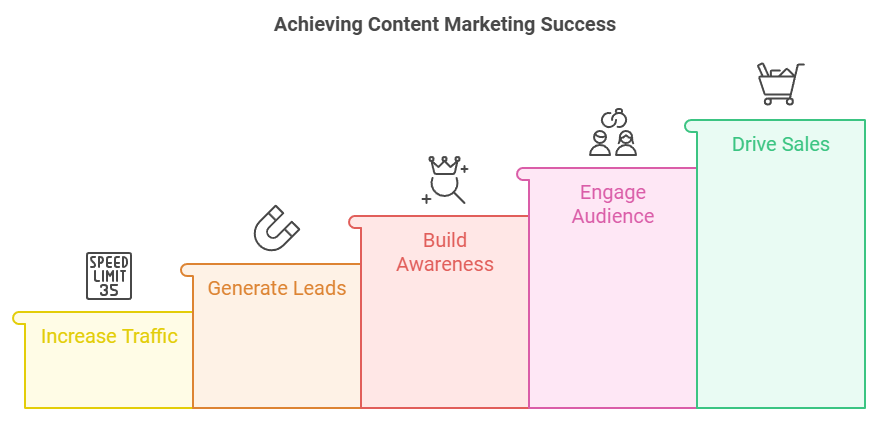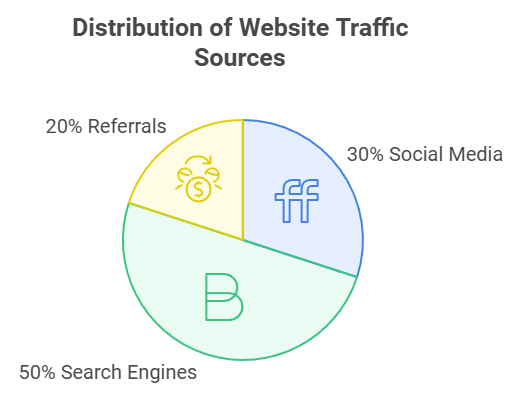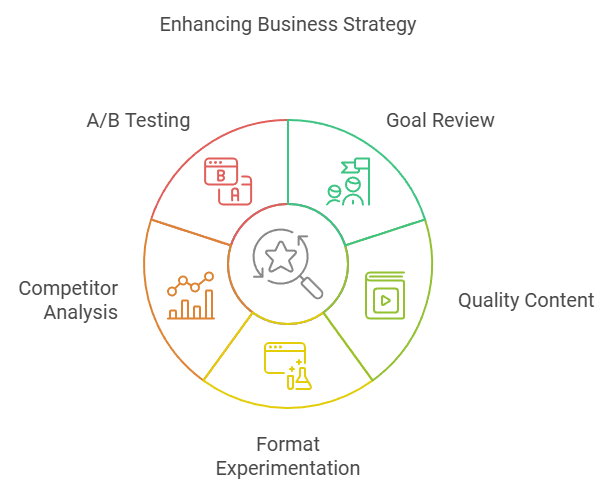Content marketing is one of the most effective ways to grow your business and build strong connections with your audience. But how can you tell if your efforts are truly paying off? Measuring the success of content marketing is a crucial step that ensures your strategy is heading in the right direction. By using the right tools and metrics, you can make informed decisions to boost your performance and achieve your goals.
Why Measuring Content Marketing Success Matters
Tracking the impact of your content marketing efforts is more than just crunching numbers. It helps you understand your audience, refine your strategies, and allocate your resources efficiently. Without measuring success, you are essentially navigating blind.
Here are some key reasons why measuring your success is important:
-
Identify what works: Understand which types of content resonate most with your audience.
-
Improve ROI: Adjust your campaigns to focus on strategies that bring the best results.
-
Build credibility: Prove the value of your efforts to stakeholders and team members.
Setting Clear Goals for Your Content Marketing
Before measuring success, you need to define your objectives. Having clear goals gives you a benchmark to measure against.
Common Goals in Content Marketing
-
Increase website traffic: Driving more visitors to your website.
-
Generate leads: Turning your audience into potential customers.
-
Build brand awareness: Making your brand more recognizable.
-
Engage your audience: Encouraging readers to interact with your content.
-
Drive sales: Boosting conversions through compelling content.

How to Define Your Goals
Start with the SMART framework: Specific, Measurable, Achievable, Relevant, and Time-bound. For example: “Increase blog traffic by 20% in the next three months.”
Key Metrics to Measure Content Marketing Success
Once your goals are set, use specific metrics to evaluate your progress. Below are the most effective metrics for measuring content marketing success.
1. Website Traffic
Website traffic is often the first indicator of how well your content is performing. Use tools like Google Analytics to track:
-
Total visits: The number of users visiting your site.
-
Traffic sources: Where your visitors come from (social media, search engines, or referrals).
-
Bounce rate: The percentage of visitors who leave without interacting.

2. Engagement Metrics
Engagement shows how much your audience interacts with your content. Key metrics include:
-
Time on page: How long users spend reading your content.
-
Social shares: The number of times your content is shared on platforms like Facebook and LinkedIn.
-
Comments and likes: Indicators of how well your content sparks conversation.
3. Lead Generation
Tracking leads helps measure how effective your content is in turning visitors into potential customers. Monitor:
-
Form submissions: Count how many people fill out forms on your site.
-
Downloads: Track gated content like eBooks or whitepapers.
-
Email sign-ups: Measure the growth of your email list.
4. Conversion Rates
This metric tracks how many users complete a desired action, like making a purchase or signing up for a service. Tools like Google Tag Manager can help you set up conversion tracking.
5. Return on Investment (ROI)
ROI is the ultimate measure of success. To calculate it, divide the revenue generated by your content by the cost of creating and promoting it.
Tools to Help You Measure Content Marketing
Measuring success becomes easier when you use the right tools. Here are some reliable options to get started:
1. Google Analytics
A free tool that tracks website performance, user behavior, and traffic sources.
2. SEMrush
This platform offers insights into SEO performance, keyword rankings, and backlinks.
3. HubSpot
An all-in-one marketing tool to track leads, conversions, and engagement metrics.
4. Social Media Insights
Platforms like Facebook and Twitter provide built-in analytics to monitor social media performance.
5. Email Marketing Software
Tools like Mailchimp or Constant Contact help track open rates, click-through rates, and overall email engagement.
Steps to Improve Content Marketing Performance
Now that you know how to measure success, here are some steps to improve your content marketing results:
1. Regularly Review Your Goals
Make sure your goals align with your overall business objectives. Adjust them as needed based on performance data.
2. Focus on Quality Content
High-quality content that provides value will always perform better. Focus on solving problems and addressing your audience’s needs.
3. Experiment with Formats
Test different content types, such as videos, infographics, and case studies, to see what works best for your audience.
4. Analyze Competitor Performance
Keep an eye on your competitors to identify trends and gaps you can fill.
5. Use A/B Testing
Experiment with headlines, visuals, and calls to action to see what drives better results.

Common Mistakes to Avoid
Even the best strategies can fall short if you make these common mistakes:
-
Ignoring data: Do not rely on guesswork; always back your decisions with data.
-
Overlooking the audience: Create content tailored to your audience’s preferences.
-
Setting vague goals: Be specific about what you want to achieve.
Conclusion
Measuring content marketing success is an ongoing process that requires clear goals, the right tools, and consistent effort. By focusing on key metrics like traffic, engagement, and ROI, you can refine your strategies and create more impactful content.
FAQs
1. How often should I measure content marketing success?
You should track your metrics at least monthly, but weekly reviews can help identify trends sooner.
2. What is the best tool to measure website traffic?
Google Analytics is one of the most popular and effective tools for tracking website traffic.
3. Can I measure the success of content on social media?
Yes, use built-in analytics on platforms like Facebook and Instagram to monitor likes, shares, and comments.
4. What is the biggest challenge in content marketing?
The biggest challenge is creating consistent, high-quality content that resonates with your audience.
5. How do I calculate ROI for content marketing?
Divide the revenue earned by your content by the total cost of creating and promoting it.







